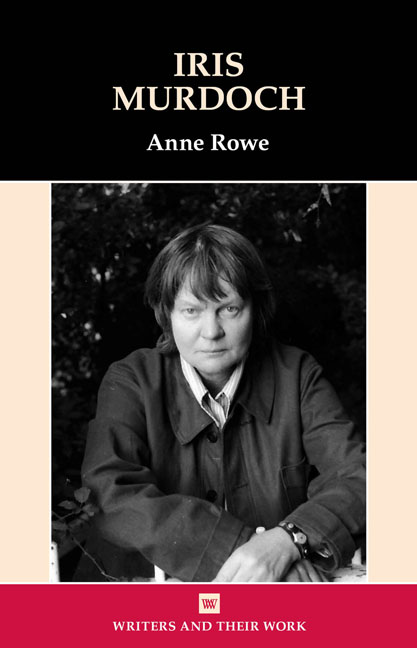Book contents
- Frontmatter
- Dedication
- Contents
- Acknowledgements
- Biographical Outline
- Abbreviations
- Introduction: Iris Murdoch (1919–1999)
- 1 A Writing Life: 1954–1995
- 2 Writing the Novel of Ideas: The Philosopher and Public Intellectual
- 3 Writing Sacraments: The Holy Atheist
- 4 Writing ‘A New Vocabulary of Experience’
- 5 Writing the Landscape: The Island of Spells and the Sacred City
- Afterword: ‘Onward!’
- Notes
- Select Bibliography
- Index
4 - Writing ‘A New Vocabulary of Experience’
- Frontmatter
- Dedication
- Contents
- Acknowledgements
- Biographical Outline
- Abbreviations
- Introduction: Iris Murdoch (1919–1999)
- 1 A Writing Life: 1954–1995
- 2 Writing the Novel of Ideas: The Philosopher and Public Intellectual
- 3 Writing Sacraments: The Holy Atheist
- 4 Writing ‘A New Vocabulary of Experience’
- 5 Writing the Landscape: The Island of Spells and the Sacred City
- Afterword: ‘Onward!’
- Notes
- Select Bibliography
- Index
Summary
There are moments when if [language] is to serve us, it has to be used creatively […] the task [is] to extend, as poets may extend, the limits of language and enable it to illuminate regions of reality which were formerly dark. (EM 90)
‘Anything I shall ever write will owe so much, so much to you’ (LOP 87) wrote Murdoch to Raymond Queneau in 1947, and she went on to experiment with the novel form as ambitiously as Queneau himself, creating of a fully synaesthetic art form, where the practices of painting, drama, music and poetry were subsumed into her novels to maximize their emotional and moral impact. Inspired also by Henry James – the only novelist whom she publicly acknowledged as an influence on her work (TCHF, 28) – she would explore how these ‘sister arts’ could ‘sustain and explain’ each other. This interdisciplinary enterprise, alongside her deflection of narrowly philosophical readings of her novels, should have encouraged critics away from her cerebral ‘idea play’ towards the more seductive, aesthetic aspect of her narratives. Yet the sensuous dimension of her novels has been oddly neglected, and critics have rarely commented on how far readers arrive at meaning not only through logic, but also through an invasion of the senses. Art, she said, should be ‘pure pleasure’, and she referred to the way great art should ‘move one’, through humour, love, and beauty: ‘We enjoy art […] because it disturbs us in deep often incomprehensible ways’, she suggested, and said she ‘would include the arousing of emotions in the definition of art […] the sensuous nature of art is involved here, the fact that it is concerned with visual and auditory sensations and bodily sensations […] if nothing sensuous is present no art is present’ (EM 10). Hers is a narrative of feeling, reflecting her understanding that all human experience originates in the body: ‘we think with our body, with its yearnings and its shrinkings and its ghostly walkings’, observes the narrative voice in The Nice and The Good (334), acknowledging that physical sensation is the first stage in a continuum that leads to spiritual and moral growth.
- Type
- Chapter
- Information
- Iris Murdoch , pp. 78 - 95Publisher: Liverpool University PressPrint publication year: 2019

